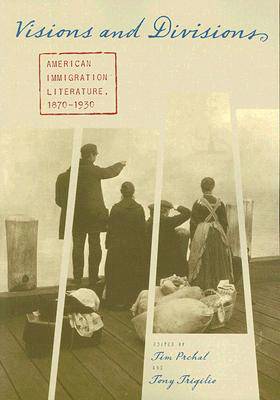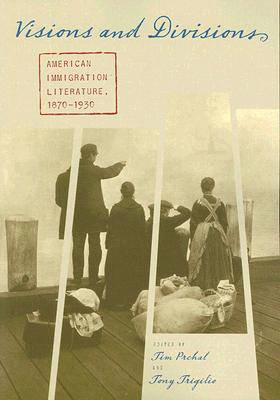
- Retrait gratuit dans votre magasin Club
- 7.000.000 titres dans notre catalogue
- Payer en toute sécurité
- Toujours un magasin près de chez vous
- Retrait gratuit dans votre magasin Club
- 7.000.0000 titres dans notre catalogue
- Payer en toute sécurité
- Toujours un magasin près de chez vous
Visions and Divisions
American Immigration Literature, 1870-1930
59,45 €
+ 118 points
Description
For many years, America cherished its image as a Golden Door for the world's oppressed. But during the Progressive Era, mounting racial hostility along with new national legislation that imposed strict restrictions on immigration began to show the nation in a different light. The literature of this period reflects the controversy and uncertainty that abounded regarding the meaning of "American." Literary output participated in debates about restriction, assimilation, and whether the idea of the "Melting Pot" was worth preserving. Writers advocated--and also challenged--what emerged as a radical new way of understanding the nation's ethnic and racial identity: cultural pluralism. From these debates came such novels as Willa Cather's My Ántonia and Upton Sinclair's The Jungle. Henry James, Charlotte Perkins Gilman, and Carl Sandburg added to the diversity of viewpoints of native born Americans while equally divergent immigrant perspectives were represented by writers such as Anzia Yezierska, Kahlil Gibran, and Claude McKay. This anthology presents the writing of these authors, among others less well known, to show the many ways literature participated in shaping the face of immigration. The volume also includes an introduction, annotations, a timeline, and historical documents that contextualize the literature.
Spécifications
Parties prenantes
- Editeur:
Contenu
- Nombre de pages :
- 408
- Langue:
- Anglais
- Collection :
Caractéristiques
- EAN:
- 9780813542348
- Date de parution :
- 01-02-08
- Format:
- Livre broché
- Format numérique:
- Trade paperback (VS)
- Dimensions :
- 175 mm x 249 mm
- Poids :
- 703 g

Les avis
Nous publions uniquement les avis qui respectent les conditions requises. Consultez nos conditions pour les avis.





